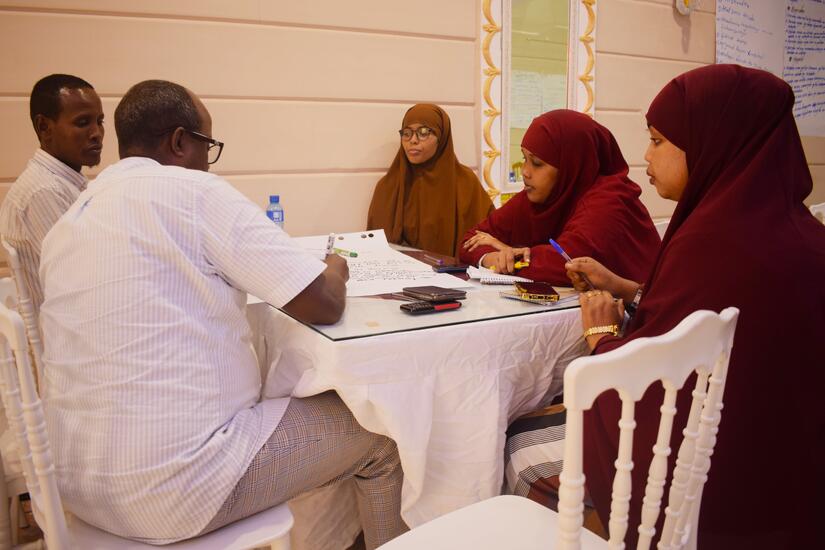Building Safe Spaces in Schools
Protection
CISP organized a 5-day training at Taleh Hotel for 12 head teachers (7 male, 5 female) from various schools including 21 October, Mohamud Hilolwe, and Ali Hussein Mohamud Mire Schools. This initiative was part of the ‘What Works 2’ Project - ‘Empowered Communities including Boys and Girls to Fight Violence Against Women and Children in Schools in Somalia” funded by Foreign Commonwealth Development Office (FCDO)
The objective of the training was to educate teachers about the Communities Care Programme and its Community Engagement and Action component. The focus was on identifying and addressing harmful social norms that contribute to gender-based violence, and the barriers that hinder students' access to education. Participants engaged in interactive discussions and activities designed to foster a supportive school environment.
Ubax Mohamed, a female mentor from Ali Hussein School, highlighted a critical issue among her students: a lack of awareness about Gender-Based Violence (GBV) and its consequences. She also noted that many students are unaware of how to report GBV cases to reliable sources.
The trained teachers will facilitate dialogues for the Boys and Girls Networks (BGN), a child-friendly space that brings children together to discuss issues affecting them. The network aims to empower children by raising awareness of their rights and responsibilities, while also fostering their self-confidence and ability to form independent opinions about their role in society. This initiative helps protect children from abuse and violence and encourages their engagement in public speaking and peer-to-peer education.
“I gained a great deal from the training, learning how to prevent gender-based violence and the steps to take if it occurs in schools. This training has significantly enhanced my understanding of GBV and provided me with the tools to respond effectively in such cases,” said Mr. Abdukadir Mohamed Jim’ale, Head teacher at 21 October School.
Throughout the workshop, participants shared experiences and best practices, collaborating on strategies to promote gender equality and encourage student involvement. The training also included practical sessions on integrating these concepts into school policies and daily practices.

